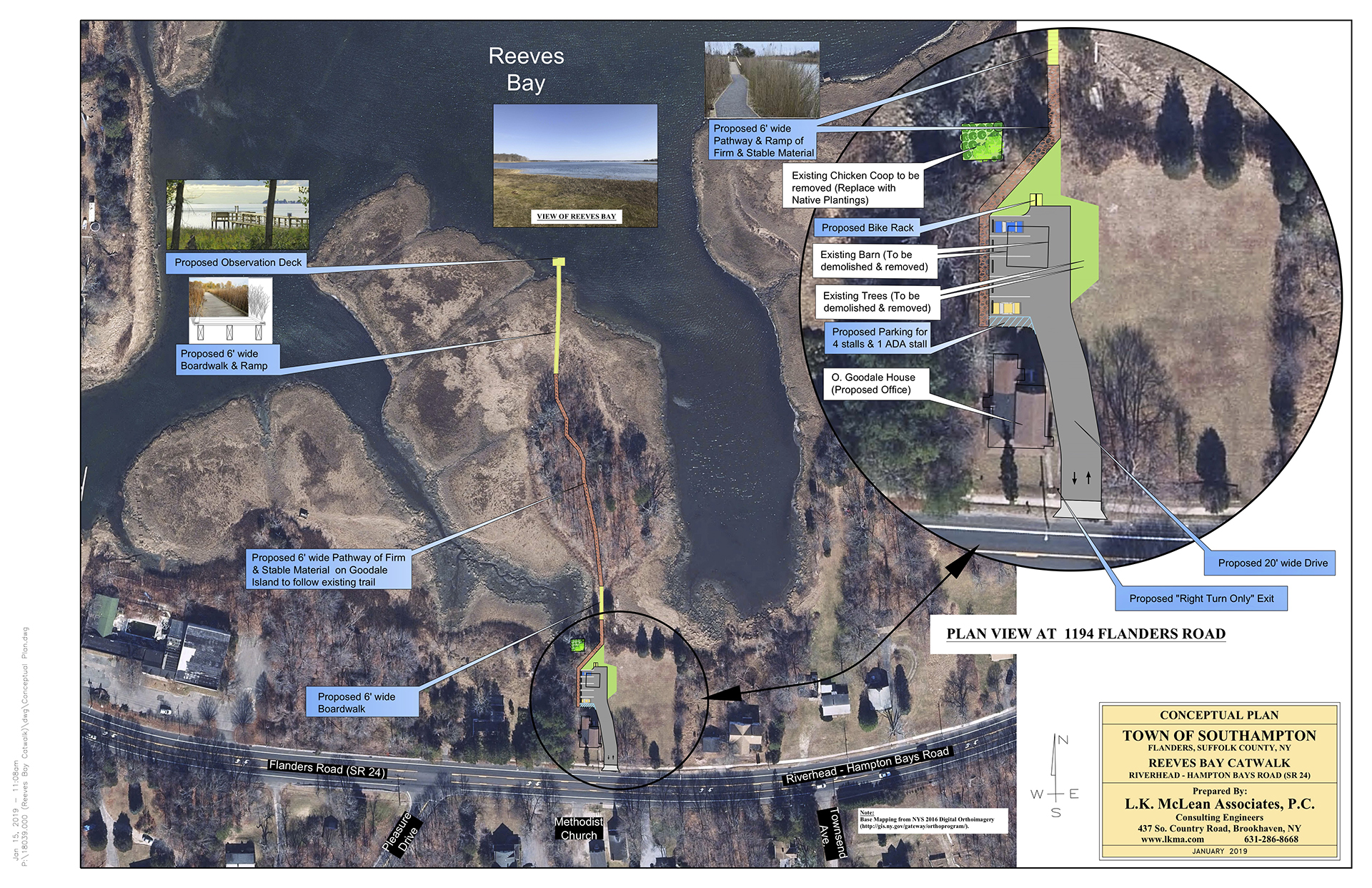Catwalk, Waste Management Plan Updates


Conceptual plans have been finalized for the catwalk at Reeves Bay in Flanders.
The Community Preservation Fund project plan, coming in just under $500,000, was to demolish two buildings with ties to Flanders’ first settlers to give residents access to the waterfront. An elevated catwalk made of composite decking and a tropical hardwood substructure will be built to give scenic space to walk along the bay, also preserving the environment.
Compact, crushed stone will line a footpath through the woods to the catwalk platform, which can accommodate several people, architect Matt Jedlicka of L.K. McLean Associates told the Southampton Town Board on January 17. The structure’s materials could help it last nearly 100 years.
“It’s quite a view from the wooded peninsula,” Jedlicka said. “You can look out to the North Fork.”
The original driveway to the old buildings will be ripped up to make space for incoming and outgoing lanes that will lead to four regular and one handicapped parking space. Town board members asked to see an area along the path with benches, as well as some seating on the catwalk platform.
Town Director of Municipal Works Christine Fetten was also present at the Thursday meeting to discuss the future of waste management.
Southampton is currently working on compiling applications for private carters to obtain permits so the town can track a trucks to disposal sites. Letters with details on the need for permits will be sent out February 4 for April enforcement.
“Our goal is to track private carters to gain a better understanding of how the waste is collected, if it’s recycled, how it’s recycled,” Fetten said. “Working within the town to assess a fee, we decided to create stickers for carters to purchase.”
This plan, of which details have been submitted to the state Department of Environmental Consecration, will last through 2026. There will be a resolution for adoption at the first town board meeting next month, scheduled for February 12 at 1 PM. While there is a need to track the trucks, Fetten said the objective reaches further than that.
“Education and outreach to large generators working within the town— commercial, institutional, industrial — it’s important, and we’re reaching out to them in a sustainable vein to see how they manage waste and see how we can work together to reduce waste while coming up with concepts that can save them money,” she said.
“Technology has come so far that scales are on the trucks, so maybe we can pay on tonnage instead of paying on flat fee to create more of an incentive to reduce, reuse, recycle on their end, and that could help with cost. We want to make our facilities efficient and have permits that help us maximize that, but the plan is really a waste prevention strategy, waste reduction,” Fetten concluded.
desiree@indyeastend.com



